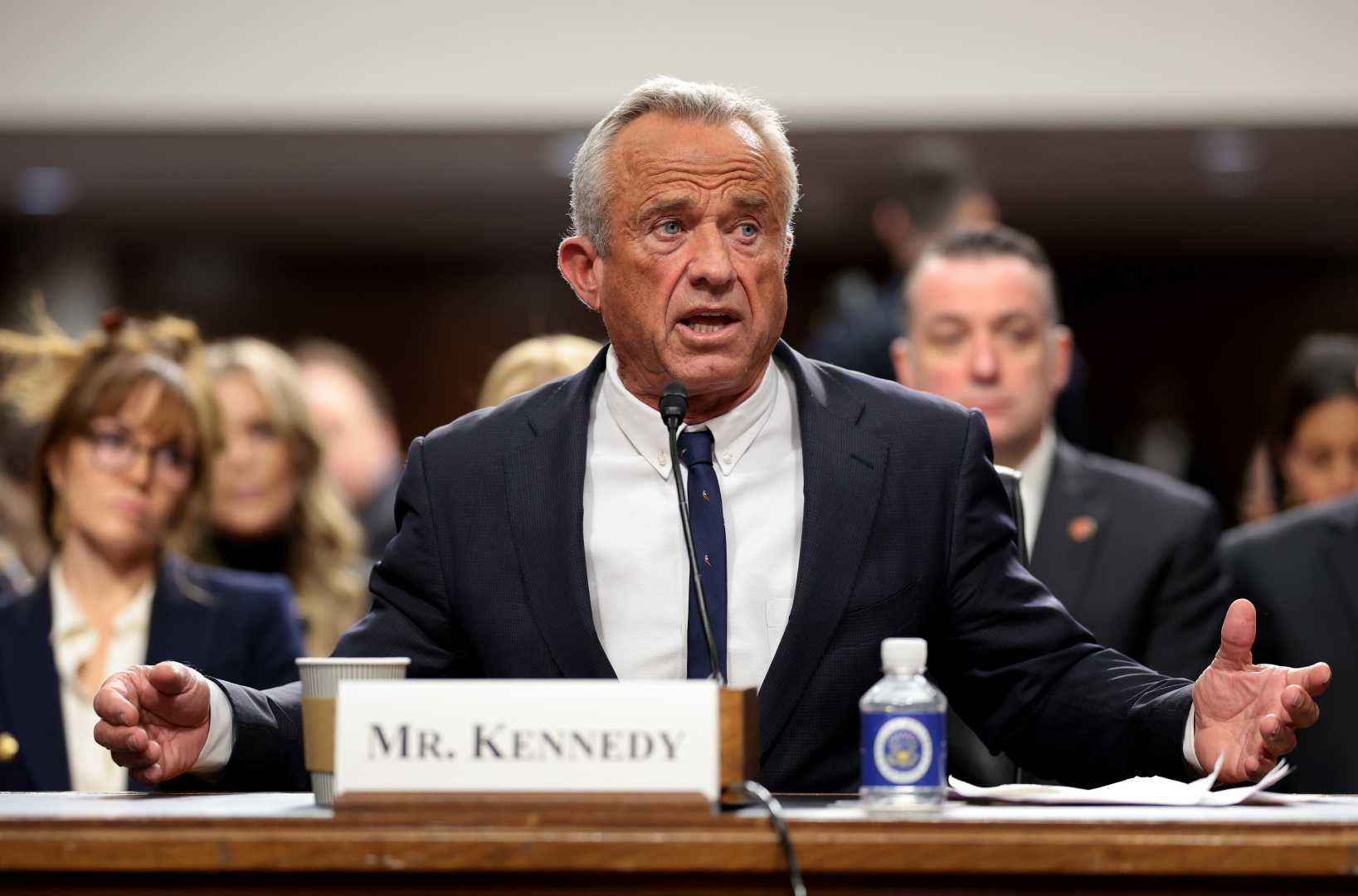Politics
Senate Confirms Robert F. Kennedy Jr. as Health Secretary Amid Controversy

WASHINGTON — The Senate confirmed Robert F. Kennedy Jr. as Secretary of Health and Human Services on Thursday, with a narrow 52-48 vote that reflected deep divisions within Congress. President Donald Trump’s nominee faced intense scrutiny due to his controversial views on vaccines and health policy.
The vote came after fierce debate, with key Republicans like Mitch McConnell of Kentucky joining Democrats in opposition, marking a significant shift in allegiance within the GOP. McConnell, a long-time party leader, has now voted against three Trump nominees, demonstrating the challenges Trump faces in unifying the party.
During the confirmation hearings, Democrats and some Republicans expressed concern over Kennedy’s anti-vaccine rhetoric, with Senator Bernie Sanders questioning his acknowledgment of scientific research linking vaccines and autism. Kennedy insisted he supported safer vaccines, claiming to be ‘pro-safety’ rather than anti-vaccine. However, critics highlighted his history of promoting misinformation about vaccine safety.
Statistically, routine childhood vaccinations are projected to prevent 322 million illnesses and more than 1 million deaths in the United States from 1994 to 2023, according to the Centers for Disease Control and Prevention (CDC). This stark reality stands in contrast to Kennedy’s public statements.
McConnell, who survived polio as a child, voiced his discontent with Kennedy’s nomination, stating, ‘This administration deserves a leader who acknowledges without qualification the efficacy of life-saving vaccines.’ His sentiments echoed the concerns raised by numerous health officials about Kennedy’s fitness for the role.
The Department of Health and Human Services (HHS) oversees critical health agencies, including the FDA and CDC, making the position of Secretary pivotal during a time when public health policy is under scrutiny. Kennedy, however, stumbled on basic questions regarding Medicare and Medicaid during his hearings, raising further doubts about his capability to lead.
The HHS currently provides health insurance to over 150 million Americans. With ongoing discussions about potential spending cuts to Medicaid, which serves low-income individuals, the stakes of Kennedy’s appointment are notably high. Critics have warned that cuts could exacerbate public health crises, particularly following significant enrollment increases during the pandemic.
Senator Bill Cassidy, a Louisiana Republican and physician, initially hesitated to support Kennedy but later confirmed his vote following discussions with the White House. ‘I had intense conversations with the White House and appreciate their honest counsel,’ Cassidy said.
Despite bipartisan concerns, the overall Republican support for Kennedy signals that the Trump administration is managing to consolidate its backing amid contentious discussions. Senators Lisa Murkowski of Alaska and Susan Collins of Maine also indicated their plans to support Kennedy’s confirmation, despite initial reservations about his vaccine stance.
Senate Minority Leader Chuck Schumer criticized the Republican support as a concession to Trump, urging his colleagues to prioritize public health over political alignment. ‘The vote on RFK is about one simple question: Will Republicans do right for American public health?’ Schumer stated.
As Kennedy steps into his role, significant challenges lie ahead, particularly in addressing public trust in vaccines, the intricacies of Medicare and Medicaid, and ongoing health crises such as measles outbreaks in Texas. Advocates for public health remain watchful, concerned about how Kennedy will navigate policies that have direct implications on the health of millions of Americans.












